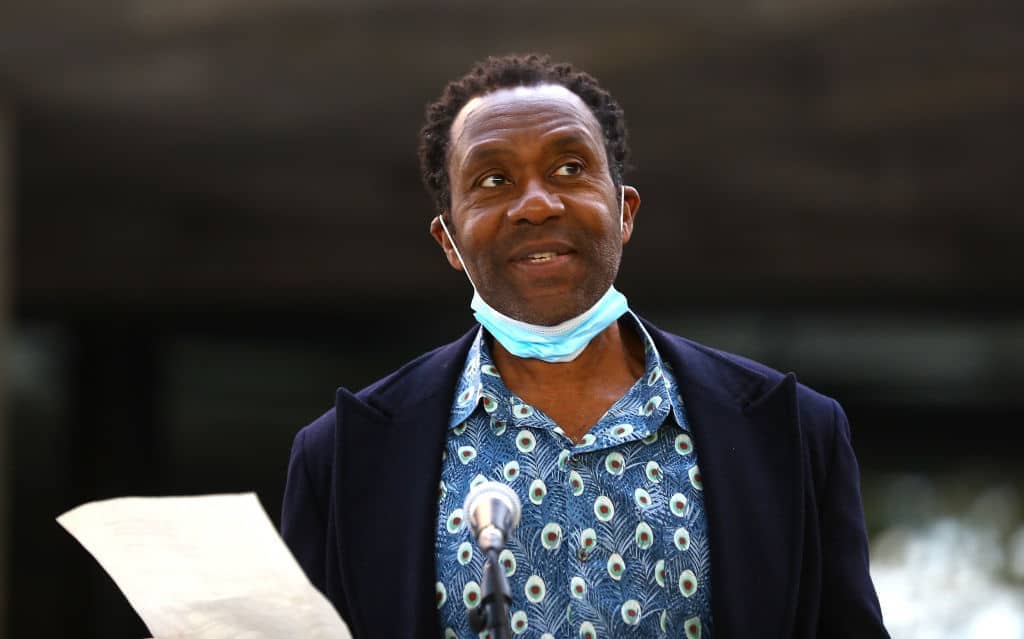Broadcasters in the UK have declared they will no longer use the acronym BAME to refer to black, Asian and minority ethnic people. Following a report by the Sir Lenny Henry Centre for Media Diversity, the BBC, ITV, Channel 4 and Channel 5 have committed themselves to avoiding this catch-all term ‘wherever possible’, in favour of more specific terms to describe ethnicity. This is good news.
Last year a task force set up by UK Music, which represents the commercial interests of the sector, called the term ‘outdated and offensive’; this latest report concluded that it could cause ‘serious insult’. Quite so. The categorical term ‘BAME’ might as well have been called ‘Miscellaneous’, in crudely lumping together all non-white people.
The report said that ‘BAME’ had been ‘used to hide failures’ in the ‘representation of certain ethnic minorities’. There is indeed great variation in experiences between ethnic minorities, not least in wealth and education. According to a Parliamentary study, those from Bangladeshi and Pakistani backgrounds are twice as likely to be in the bottom fifth of incomes than average, having the lowest median household incomes. They are closely followed by people from a black ethnic group, while people from white and Indian groups had the highest median incomes.
Pigeon-holing people by ethnicity, sexuality or race can be a perilous and counter-productive affair
In education, the worst performers are Black Caribbean and White British, followed by those of Pakistani ethnicity. The best performers in secondary schools are Indians and Chinese who, according to the government, outperform White British by ‘wide margins’.
Such statistics not only render the term ‘BAME’ useless and misleading, but they make a nonsense of the popular narratives of ‘white privilege’ and the oppression of ethnic minorities.
Clearly, minorities in Britain have different cultures and different experiences. This is why umbrella descriptions can be unhelpful, as the emergent disputes within the ‘LGBT+’ ‘community’ have illustrated. The tension between those campaigning for transsexual recognition, and those campaigning primarily for gay rights, resulted in the establishment two years ago of the LGB Alliance. They objected to Stonewall’s recent embrace of trans ideology, seeing it as ignoring or imperilling the plight of lesbians and biological women.
Yet Britain’s gay population has never been a homogenous entity in the first place, and why should it be? ‘The gays and the lesbians never meet. They have nothing, nothing to say to each other,’ says Douglas Murray.
Pigeon-holing people by ethnicity, sexuality or race can be a perilous and counter-productive affair. Owing to their relative success in the United States, Asian-Americans are sometimes perceived and treated as an elite group. The different treatment often meted out to overachieving Asian-Americans, especially when it comes to affirmative action and officially-sanctioned racial quotas, has generated rancour and mistrust across the board – even among the less privileged members of this category itself.
This is why many people dislike identity politics and the notion of ‘raising awareness’ of differences. Raising awareness mostly just raises resentment. And the best way to lessen such resentment is to deconstruct sectarian categories on a case-by-case basis, exposing them as fundamentally untenable and unsound. Foregoing ‘BAME’ is a start. And the latest dubious triumphs of transgender women in swimming has not only raised some eyebrows, but has again undermined the integrity of trans ideology.
Take me: my mother is Irish, I have always had an Irish passport and was raised a Catholic, but these labels are functionally meaningless. I don’t sound or feel Irish and I’m not religious – although my census return might tell you otherwise on both counts. Were I a proper Irishman in England, thirty years ago I might have been denied a job, a room to stay in or have faced hostility in connection to IRA bombs. ‘Irish’ to me is both a real and nebulous appellation.
Ultimately, it would be preferable if we jettisoned all ethnic, sexual and racial taxonomy in the field of public affairs and engagement. This is not going to happen, of course, as people will always register difference where they can see or hear it. We will never be rid of racism. But we will also never be rid of robbery or murder either. This doesn’t mean we surrender to harmful social ills. We continue to fight, reduce and prevent them. Likewise, a colour-blind and label-free Britain is a dream that will never happen, but it’s still one worth pursuing.






Comments